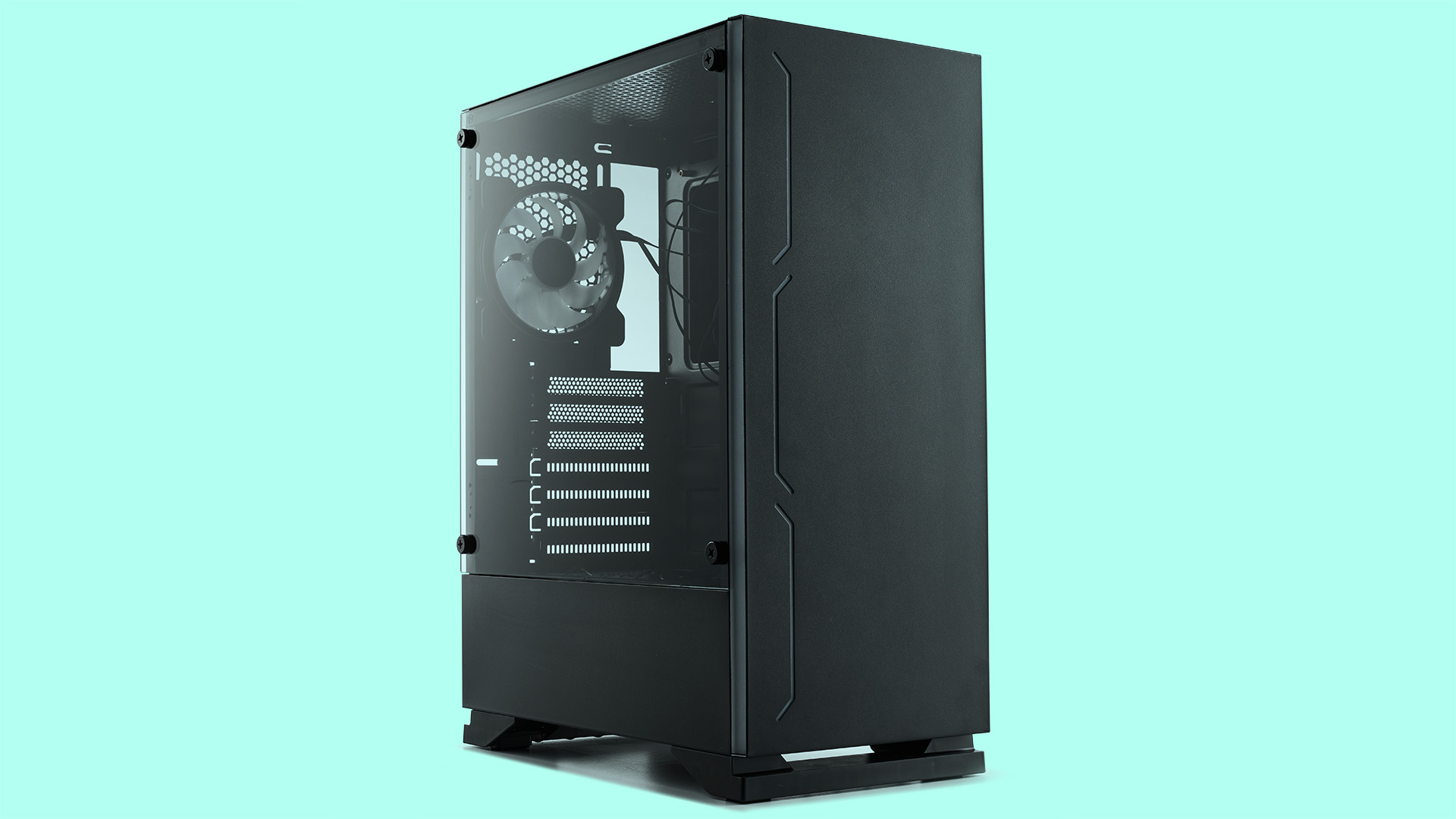
A solid foundation for a budget gaming PC.
The Kolink Inspire K11 is a picture of a modern mid-tower PC case, and I have to say I’m actually rather surprised by the general level of quality manufacturing with this case. It’s very well put together, and while there are still a few signs of its budget roots, the case does well to mitigate those with a few smart decisions.
Kolink Inspire K8 – Interesting but underwhelming
Aerocool Hive – Keep it cool
Aerocool Zauron – The budget case champ
Kolink Inspire K11 – Look, a proper fan
Bitfenix Nova – Storage galore and nothing more
Kolink Nimbus – Styling on a budget
Aerocool Tomahawk – Good but not good enough
For one, it has actually reusable PCIe slots. That needn’t be such a big deal, but when you spend all day prying off pieces of metal from cheap cases, which you then have to throw away, it makes for a nice change. It also saves you from having a gap above your GPU if you ever move it down a slot or two. Though to be clear it’s only the top three PCIe slots that are able to be screwed back in on the Inspire K11.
This is the only cheap case I tested that comes with a PWM fan that can be plugged directly into a motherboard for variable speeds—most come with Molex-powered fans that run at a set RPM. The included Umbra aRGB 120mm fan is installed in the rear of the case, which does leave you without a front intake fan for optimal airflow, but does light up all the colours of the rainbow. That’s what the people want, right?
If you want that then you’re looking at the right case. The K11 also comes with RGB strips down the left-hand side of the front panel, which can controlled via a motherboard’s 3-pin 5V RGB header, alongside the RGB-enabled fan.
(Image credit: Future)
Cheap case airflow test
The main ingredient for an impressive PC case is airflow, but you’d be surprised by just how many case designs don’t get this quite right. Ideally, we want our case to draw in cool air from a handful of high flow intake fans at the front, over our PC’s components, then out the exhaust. Cheap cases, however, don’t always come with the ideal number of fans for this optimal setup, so it’s extra important to find one that is smartly designed to work with limited cooling potential.
To test the thermal properties of these six cheap cases, I built a PC into each of them. Then I ran a handful of benchmarks to put the CPU and GPU under day-to-day stress and collated the average results into this graph.
(Image credit: Future)
Size: Mid-tower
2.5-inch bays: 4 max
3.5-inch bays: 2 max
Max GPU length: 315mm
Max fan support: 8 x 120mm
Lighting: Fan and front
Side panel: Yes, glass
Front panel: Power, reset, audio, 1 x USB 3.0, 2 x USB 2.0
Price: £40
There are tons of mounting options with the K11, including along the top of the case where a sizeable vent is covered by a half-decent dust filter. This has space for a 240mm radiator, which makes for plenty of room when paired with the space down the front for a 360mm one. There’s even two 120mm fan mounts on the PSU shroud, if you need them.
Though it’s worth noting that out of the box that single fan doesn’t deliver particularly impressive thermal performance, and you probably will want to buy further cooling to keep your PC running at optimal temps.
One thing to note is that the front panel on the Inspire 11 features two USB 2.0 ports and just one USB 3.0 port, so you’re down one speedier port compared to most.
The Kolink is best seen as a cheap case that makes a rock-solid baseline for further improvements. You can settle for this cheap case, build a functional PC, and when you’re able thwack a great cooling solution in there too. It’s pretty flexible, and if it wasn’t for the fact that other cheap cases deliver a little more out of the box, this would be one of the best. It’s definitely worth checking out, at the very least.
Our group test: A budget PC case is a great way to trim costs on your next PC build, yet many of the brands we’re used to seeing in the top case round-ups aren’t anywhere near cheap enough for what we’re after. That’s why I asked our friends at Overclockers UK if it would lend us its cheapest cases to see which is worth your small pile of coins, and of the seven cases they sent my way, I made my conclusions.






